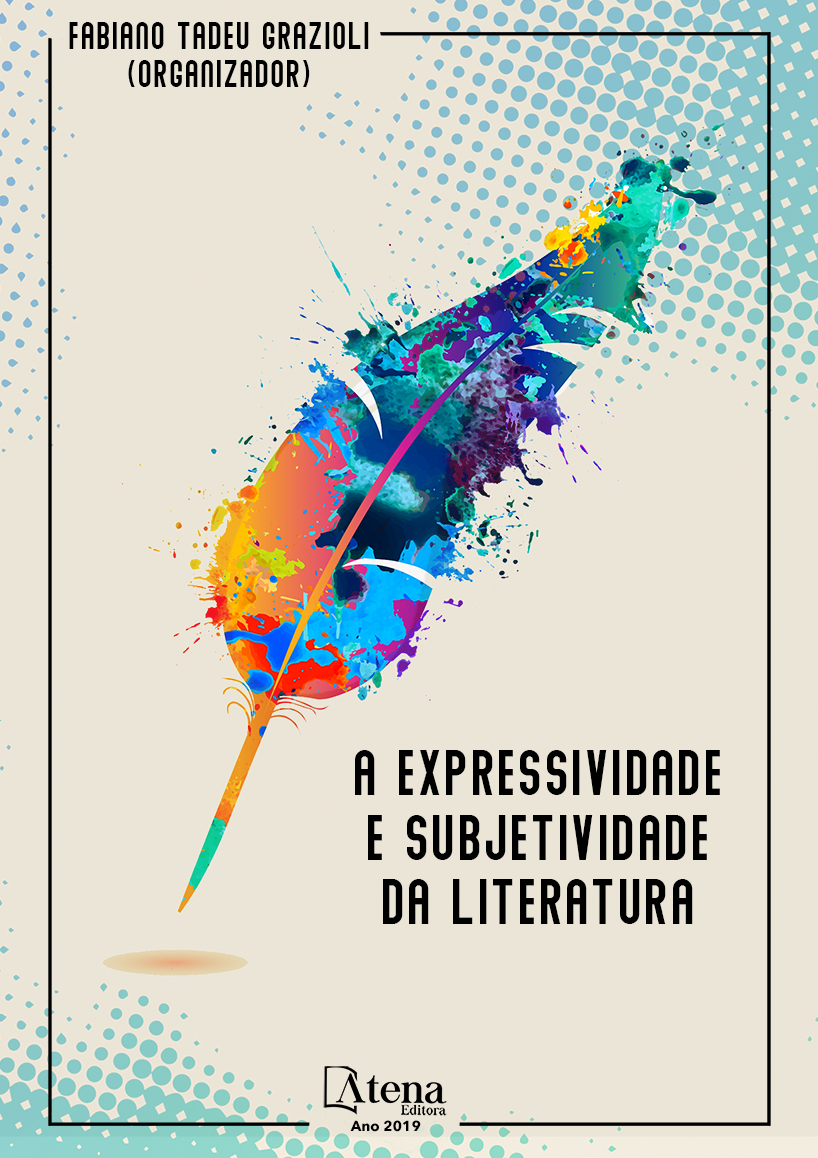
A CONSTRUÇÃO DOS SENTIDOS DO TEXTO LITERÁRIO POR CRIANÇAS DO 1º CICLO DE FORMAÇÃO HUMANA
O artigo é resultado de uma
pesquisa de Doutorado desenvolvida no Centro
Pedagógico da UFMG. A investigação analisou
elementos destacados por crianças do 1º Ciclo,
nos livros publicados em 2015, e considerados
Altamente Recomendáveis para crianças pela
Fundação Nacional do Livro Infantil e Juvenil
(FNLIJ). Desenvolvemos uma conversação
literária, com grupos de 4/5 crianças, tendo como
referência os Círculos de Leitura (COSSON,
2014). Nosso objetivo era observar o que elas
diziam sobre os livros, quais obras chamavam
a sua atenção, que elementos destacavam,
que observações faziam a respeito das capas,
das imagens, do texto verbal, dentre outras
considerações que quisessem socializar. As
interações foram filmadas e gravadas em áudio.
Como metodologia de pesquisa, utilizamos
o enfoque Dime (CHAMBERS, 2007), que
estimula os leitores a falar de suas leituras
e a compartilhar ideias. Este artigo reflete
sobre episódios específicos da pesquisa,
momentos em que as crianças compartilharam
experiências a partir do diálogo sobre o livro
“Lá e Aqui”. A investigação mostrou que as
crianças são capazes de emitir avaliações sobre
os livros literários, destacando elementos que
consideram essenciais, entretanto, muitas vezes,
não conseguem perceber metáforas utilizadas.
Com base nos dados, é possível afirmar que
as crianças mostram-se ativas participantes da
interação propiciada pelos Círculos de Leitura,
apontando aspectos interessantes nos livros,
quando fazem previsões motivadas, sobretudo,
pelas imagens. As análises mostraram a
necessidade de mediação para que elas
ampliem a compreensão de textos literários
desafiadores, que exigem do leitor habilidades
complexas como a de realizar inferências.
A CONSTRUÇÃO DOS SENTIDOS DO TEXTO LITERÁRIO POR CRIANÇAS DO 1º CICLO DE FORMAÇÃO HUMANA
-
DOI: 10.22533/at.ed.93819020917
-
Palavras-chave: Círculos de leitura, Leitura literária, Mediação, Literatura Infantil
-
Keywords: Reading circles, Literary reading, Mediation.
-
Abstract:
The article is the result of a
research of a Doctorate Degree developed at
Centro Pedagógico - UFMG. The investigation
has its focus on analysing highlighted elements
by children from elementary school, in
books from 2015, and considered Altamente
Recomendáveis for children by Fundação
Nacional do Livro Infantil e Juvenil (FNLIJ). We developed a literary conversation with
groups of 4/5 children, having as refference of Círculo de Leitura (COSSON, 2014). Our
goal was to observe what they said about the books, which books caught their attention,
which elements came up when read, which observations were made about the cover,
and also the pictures and other considerations worth pointing out. The interactions
were filmed and recorded. As a research methodology, we used the approach of Dime
(CHAMBERS, 2007), which stimulates the readers to talk about their readings and
share their ideas. The focus of this project is to reflect about specific episodes of the
research, moments when the children shared experiences through dialogue about
the book Lá e Aqui. In the process of construction of senses of the text, a reading
game was observed in which the pictures were presented as an essential part of the
process. The investigation showed that the children are able to emit evaluations about
the literary books, detaching elements they consider essential in the material, however,
many times they could not notice the metaphores. Based on the data, it is possible to
claim that the children are active readers that focalize interesting aspects in the books,
making predictions motivated by the illustrations but they need mediation to widen their
comprehension of some literary texts which demands on the reader complex abilities
like doing inferences.
-
Número de páginas: 15
- Maria Elisa de Araújo Grossi
- Maria Zélia Versiani Machado


